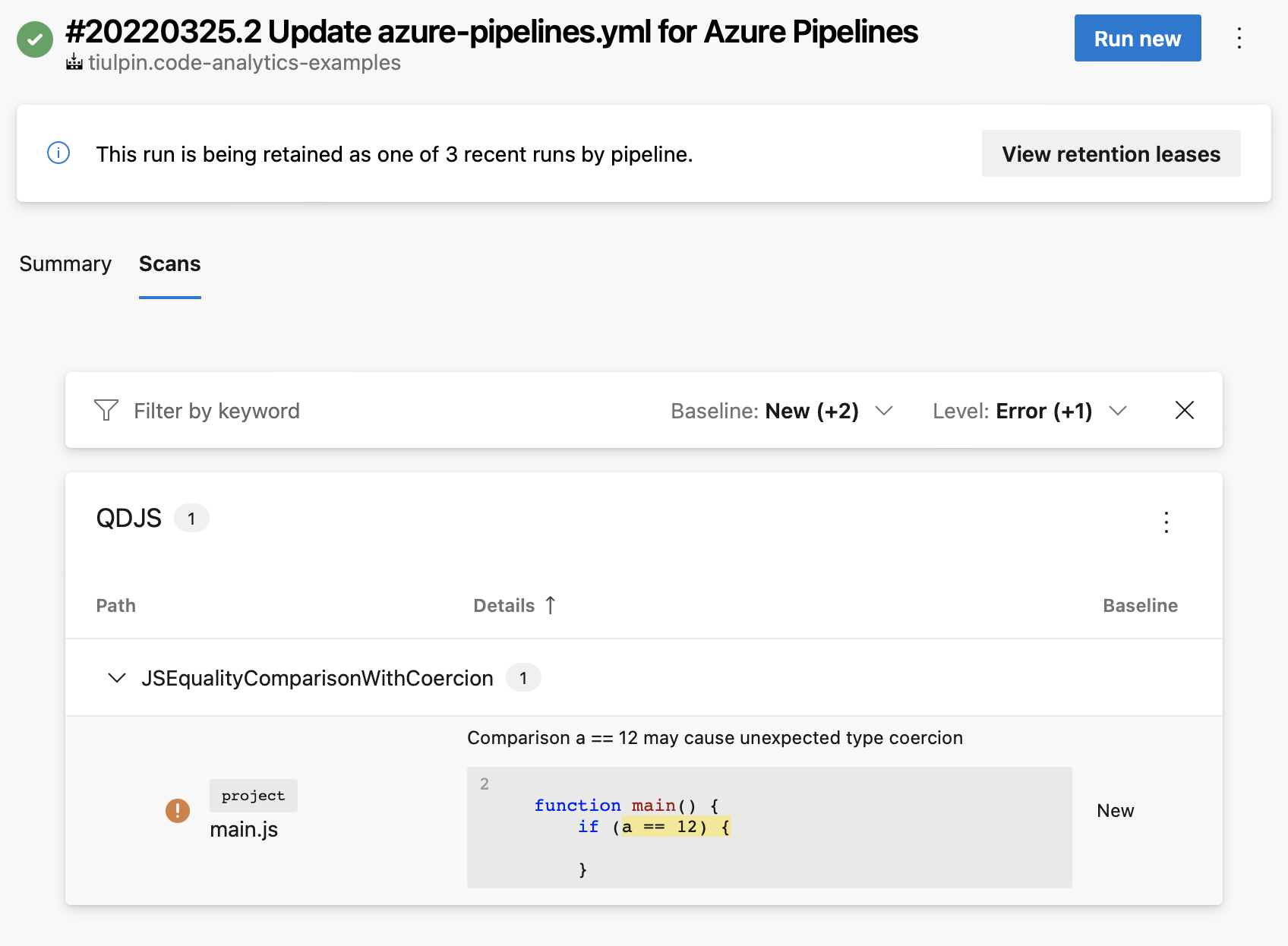Qodana is a code quality monitoring tool that identifies and suggests fixes for bugs, security vulnerabilities, duplications, and imperfections.
Table of Contents
- Qodana Scan
Qodana Scan is an Azure Pipelines task packed inside this extension to scan your code with Qodana.
After you've installed Qodana for Azure Pipelines to your organization, to configure the Qodana Scan task, edit your azure-pipelines.yml file:
# Start with a minimal pipeline that you can customize to build and deploy your code.
# Add steps that build, run tests, deploy, and more:
# https://aka.ms/yaml
trigger:
- main
pool:
vmImage: ubuntu-latest
steps:
- task: Cache@2 # Not required, but Qodana will open projects with cache faster.
inputs:
key: '"$(Build.Repository.Name)" | "$(Build.SourceBranchName)" | "$(Build.SourceVersion)"'
path: '$(Agent.TempDirectory)/qodana/cache'
restoreKeys: |
"$(Build.Repository.Name)" | "$(Build.SourceBranchName)"
"$(Build.Repository.Name)"
- task: QodanaScan@1Triggering this job depends on what type of repository you are using in Azure Pipelines.
The task can be run on any OS and x86_64/arm64 CPUs, but it requires the agent to have Docker installed. And since most of Qodana Docker images are Linux-based, the docker daemon must run Linux containers.
To display Qodana report summary in Azure DevOps UI in 'Scans' tab, install Microsoft DevLabs’ SARIF SAST Scans Tab extension.
You probably won't need other options than args: all other options can be helpful if you are configuring multiple Qodana Scan jobs in one workflow.
| Name | Description | Default Value |
|---|---|---|
args |
Additional Qodana CLI scan command arguments, split the arguments with commas (,), e.g. -i,frontend. Optional. |
- |
resultsDir |
Directory to store the analysis results. Optional. | $(Agent.TempDirectory)/qodana/results |
uploadResult |
Upload Qodana results as an artifact to the job. Optional. | true |
artifactName |
Specify Qodana results artifact name, used for results uploading. Optional. | qodana-report |
cacheDir |
Directory to store Qodana caches. Optional. | $(Agent.TempDirectory)/qodana/cache |
All the issues, feature requests, and support related to the Qodana Azure Pipelines extension are handled on YouTrack.
If you'd like to file a new issue, please use the link YouTrack | New Issue.


